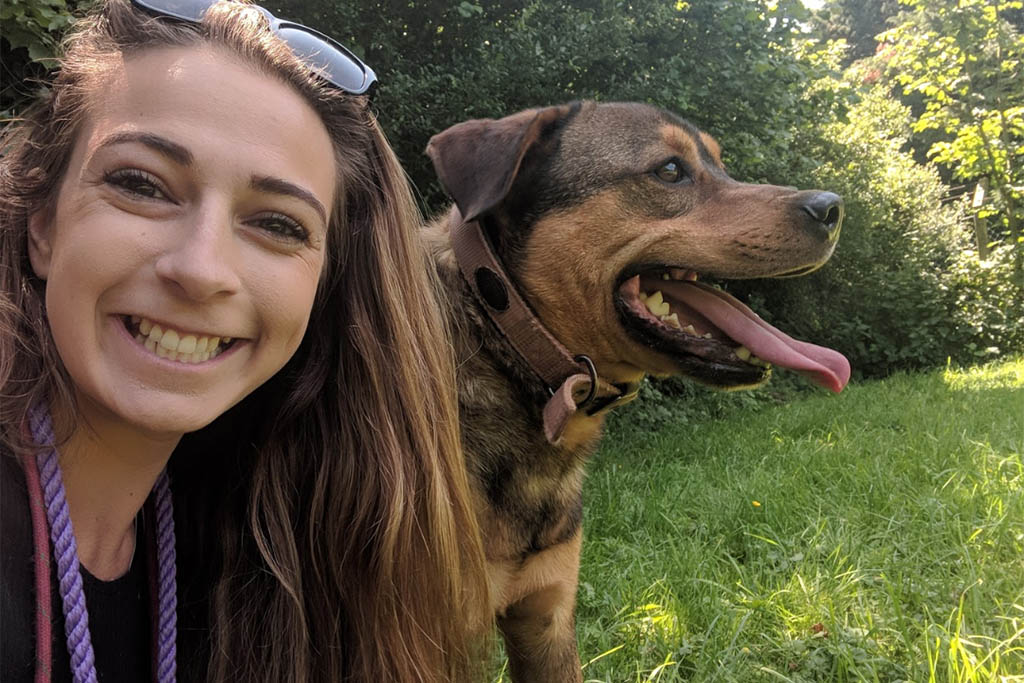Bringing a rescue dog home can be overwhelming for your new pal. Check out our tips for making your new family member comfortable and safe as he settles in.
The Rule of Three
If you don’t feel 100% comfortable with your rescued Westie straight away, don’t panic. In our experience it often takes at least three days for your new dog to work out where they are, three weeks for them to work out the routine, and three months before they start to show who they truly are.
Take it Slow
Start by making their new world a small one. Only provide access to one or two rooms of the house and don’t expect them to want three-hour long walks on their first day. Let them take their time to understand where they are and what is expected of them in this environment. Don’t take them to family gatherings or have all your friends’ round to meet them in the first few weeks. Just like a new lodger, you both need time to build a bond and create lines of communication.
Let them take their time to understand where they are and what is expected of them in this environment.
Don’t Rush
For some rescues, especially puppy farm dogs, it isn’t a good idea to smother them with love when they first arrive home. Some Westies may not be used to being handled or may not have even lived in a house before. It’s important for them to feel like they can come to you for affection when it suits them, rather than on the humans’ terms. It’s also important that they are not over stimulated in the early weeks.
Remove Points of Conflict
This extends to having a human free sleeping space, feeding away from humans (pick up the bowl hours after use), keeping toys away and not taking them directly from your rescue. The early days are all about building trust, which can build faster and deeper with less points of contention.
Write House Rules
To help with consistency in training make sure that all family members are aligned on what the rules for your Westie will be before your pup arrives.
Visit Your Westie
If possible, try to visit your Westie more than once at the rescue centre. This way you can build a bond with them before they come home. Ask to take them on a walk outside of the centre to observe their behaviour in a public space. Speak with different team members and volunteers to see what else you can find out about their personalities.
Don’t Bombard your Dog
Your West Highland Terrier is learning to trust you as its new owner, and this can often take time. Don’t take your dog to lots of family events in these early days where they will be the centre of attention or introduce them to a stream of people. Most dogs we see have never been to a human party before and may be unsure of how to behave or they may become fearful.
Time, Patience and Attitude
Like all friendships building a relationship takes time. Only take on a rescue dog if you are willing to take the small steps needed, are willing to push through the accidents, and ask yourself what your expectations are. If you expect ‘the perfect pooch’ this may not work for you or your Westie. While most dogs are rehomed due to personal circumstances, some may have behavioural issues which need working through and a positive attitude and positive reinforcement training is essential.
Stay in Touch
We love to hear how our dogs are doing in their new homes. It’s always rewarding to see photos and videos of them settled in their homes but sometimes our new owners need extra support. We, like many other rescue centres, have a team of experts and a professional behaviourist volunteer who provide free aftercare and advice following an adoption.
Get Support
Whilst most dogs who are rehomed don’t show any behavioural issues, it is important to make contact with a local trainer to support you on your journey. We often remember to train our puppies but forget about the additional training your rescue dog may need you to arrange.
Author, Dani Moulton, is the owner of Dani’s Balanced Dogs and is also a volunteer for Dog’s Friends, a charity set up to find better homes for unwanted and unloved dogs.






